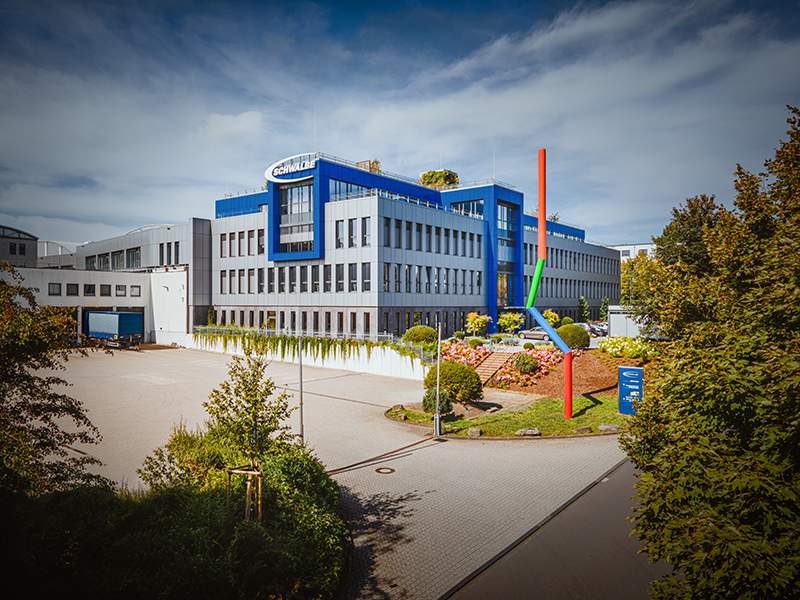SCHWALBE COMMITS TO THE CLIMATE GOALS OF THE SCIENCE BASED TARGET INITIATIVE (SBTI)
PLANS TO REDUCE EMISSIONS BY AT LEAST 50% BY 2030 AND BY 100% BY 2040
Ralf Bohle GmbH with its Schwalbe brand joins the Science Based Target Initiative (SBTi) and is thus committed to specific climate protection measures. The drastic reduction of emissions, the urgency of which to combat climate change is well known, has absolute priority. The Intergovernmental Panel on Climate Change is talking about the period from 2020 to 2030 as a decade of action.

Schwalbe assumes responsibility with its scientifically based goals and would like to make an active contribution to limiting global warming to well below 2°C. Therefore, the company has set itself two major goals:
• Short term: Schwalbe will reduce its Scope 1 and Scope 2 emissions by at least 50% by 2030 from the base year 2018.
• Long term: Schwalbe is pursuing the goal of reducing its business-relevant emissions Scope 1, 2 and 3 to net zero* by 2040, starting from the base year 2018. This means that the company would no longer contribute to the pollution of the atmosphere through emissions at all.
CEO Frank Bohle emphasizes: „Climate change requires urgent action from all of us. Therefore, we have set ourselves high goals to underline that we want to take responsibility as a company. We hope that many more will follow our example.“
The Science Based Targets initiative mobilizes companies to take urgent climate protection measures. Companies use SBT to demonstrate their commitment to reducing emissions and to set robust, credible targets that are consistent with climate science.
A key element in achieving the short-term goal by 2030 is the planned complete electrification of the Schwalbe company fleet. In addition, only renewable energies should be used at all locations. For the long-term goal, Schwalbe aims to reduce emissions along its entire value chain. The first step has already been taken with the thermal utilization of biological waste instead of coal in the Schwalbe works. Others will follow with the continuous expansion of renewable energies.
INFO
Greenhouse gas emissions are categorized into scopes according to where they occur in a value chain. A distinction is made as to where the emissions occur.
- Scope 1 means all direct emissions from own or controlled sources (e.g. business trips, on-site combustion of fuels for heat generation, etc.).
- Scope 2 summarizes all indirect emissions from the production of purchased energy that is consumed by the company.
- Finally, Scope 3 includes all other indirect emissions that occur in the production of raw materials, products or services along the value chain.
About the Science Based Target Initiative (SBTi)
The Science Based Targets (SBTi) initiative is a cooperation between the Carbon Disclosure Project (CDP), the United Nations Global Compact, the World Resources Institute (WRI) and the World Wide Fund for Nature (WWF). It supports companies in defining, evaluating and validating science-based climate targets and independently assesses the targets. The initiative was founded in 2015 to promote a significant reduction in global greenhouse gas emissions at the economic level.
*Net zero means that the total emissions emitted within a fiscal year are offset against the amount that we remove from the atmosphere through reduction measures. Reduction measures account for 95% of scope 1 and scope 2 emissions and 90% of scope 3 emissions. The reduction of the remaining emissions is achieved by financing special climate protection and development projects.
Further information
Schwalbe UK LTD
Press Office
Hortonwood 30 | Shropshire TF1 7ET Telford
Phone: +441952602680 | press@schwalbe.com
www.schwalbe.com/en
